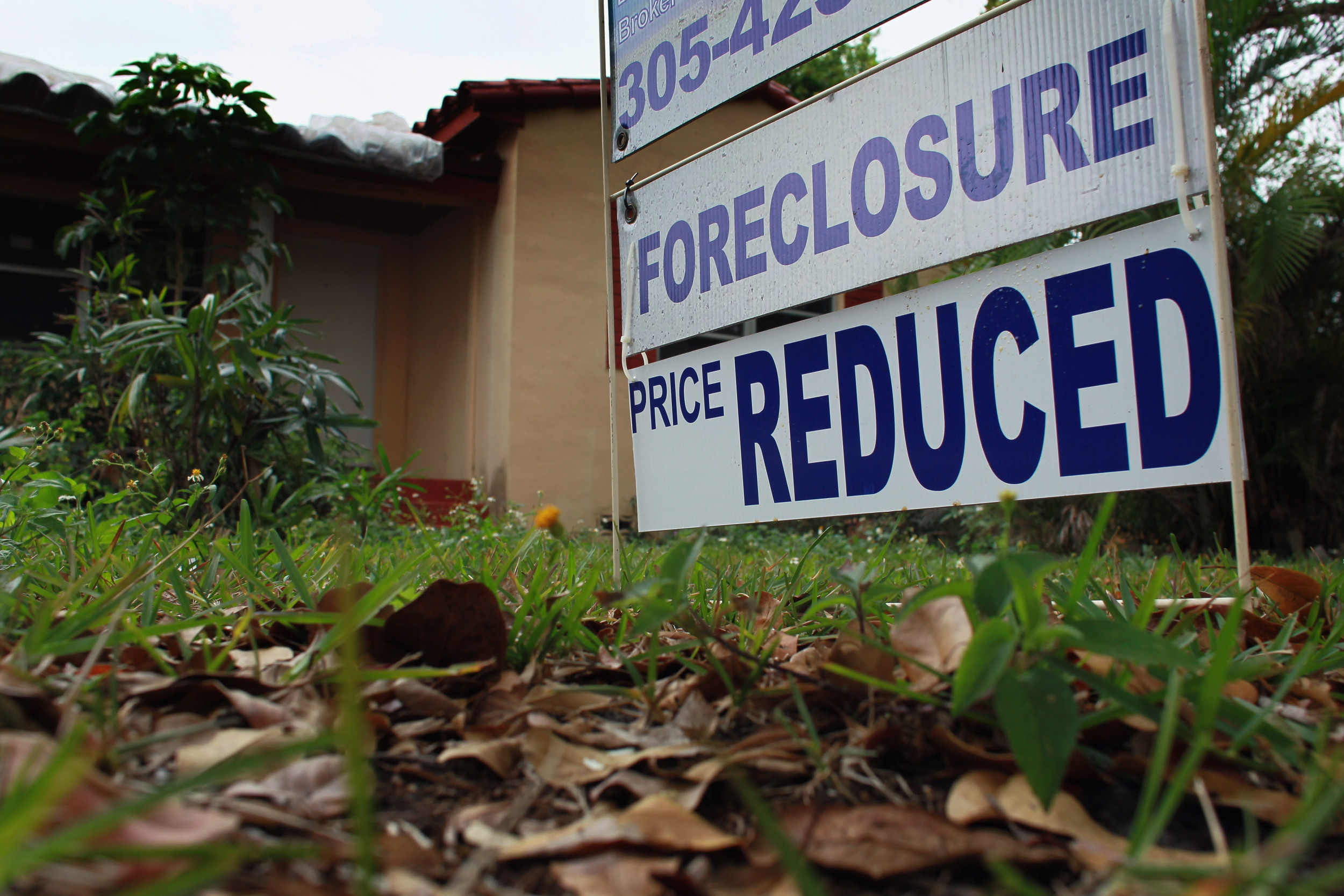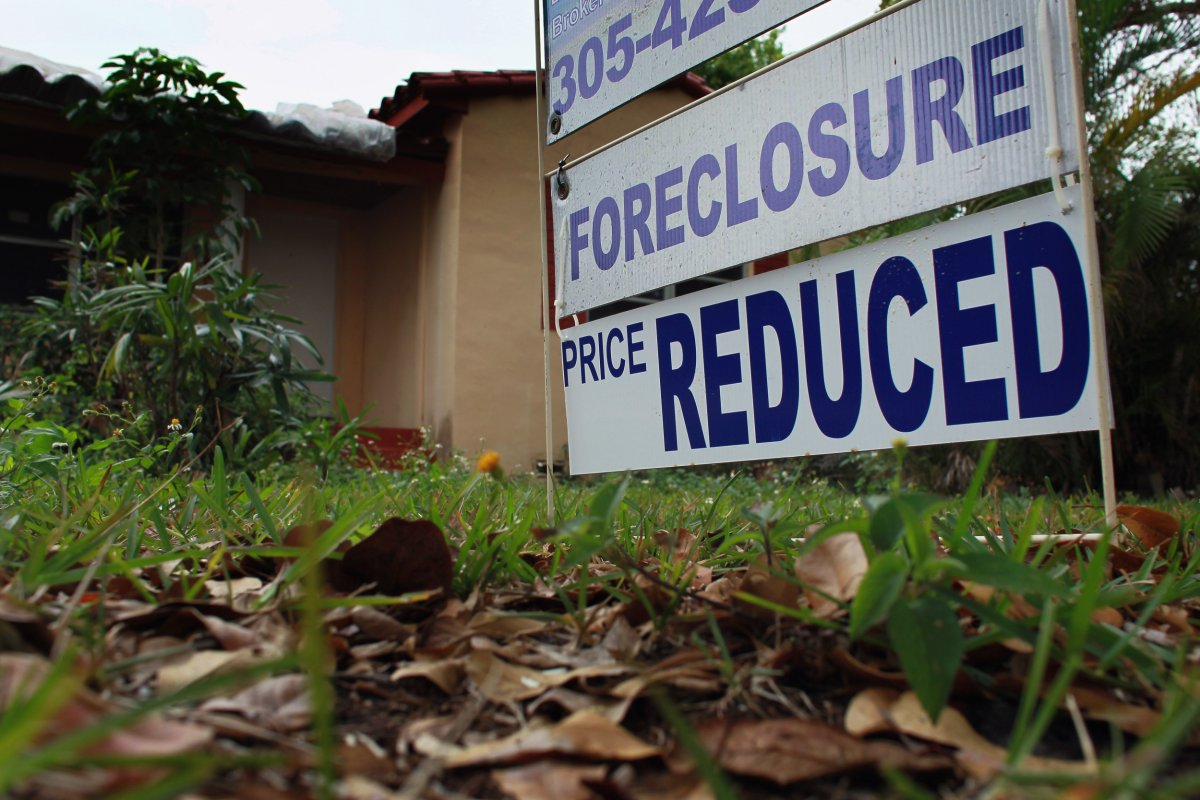
Foreclosure rates in Florida are on the rise, despite a slight decline in nationwide foreclosure rates in 2024.
Recent data from ATTOM, a property data firm, found that Florida had the highest foreclosure rates in the nation last year, tied with New Jersey.
Why It Matters
An increase in foreclosure rates serves as an important marker of shifts within the housing market. Florida, in particular, has some of the highest rates of foreclosure starts and fillings.
An uptick in foreclosures can potentially reduce property tax revenues, destabilize the housing market and lower neighborhood values through a rise in vacant properties.

Joe Raedle/Getty Images
What To Know
Per a 2024 year-end report out of ATTOM, Florida and New Jersey tied for the highest foreclosure rates in the nation. One in every 267 housing units was foreclosed.
What’s more, Florida had the second-highest number of foreclosure starts in the U.S. last year (29,239) after California (29,529). A foreclosure start is the initial legal action taken by a lender to repossess a property.
The most recent data found that Florida had the third-highest number of foreclosure filings (2,652) in December 2024, behind California (3,772) and Texas (2,868). Florida counties with the highest number of filings included Miami-Dade, Broward, Palm Beach, Hillsborough and Orange.
“Foreclosures are on the rise in Florida compared to one year ago,” Hannah Jones, a senior research analyst at Realtor.com, told Newsweek.
Jones reported that housing inventory in Florida climbed to an average of 54.8 percent in 2024, while the average time on the market grew by 11 days year over year. Home prices, meanwhile, fell by an average of 4.4 percent.
“All of these housing dynamics signify a cooling market in which sellers may not be able to make their money back and pay off their mortgage loan with a home sale,” Jones said.
Despite the recent rise, Jones noted that foreclosures still make up a small portion of homes for sale in Florida.
What People Are Saying
Sean Snaith, director of the University of Central Florida’s Institute for Economic Forecasting, told Newsweek: “The labor market in Florida remains very strong, so people losing their job and being unable to pay their mortgage is not driving this. I think it may be a couple of factors. Homeowners insurance rates have increased significantly in the state and thus monthly mortgage payments have increased… this may have been enough to tip people into foreclosures, particularly given what happened to housing prices in the COVID era as recent buyers already had very high monthly payments. The other factor may be related to legislation passed in the wake of the Surfside condo collapse that has resulted in higher association fees and special assessments.”
Hannah Jones, a senior research analyst at Realtor.com, told Newsweek: “… Climbing inventory has led to falling home prices across [Florida] over the last 10 months, meaning many homeowners would not be able to make their money back with a home sale. As a result, foreclosure is the only option for an increasing number of homeowners struggling to make housing payments[…].”
Rob Barber, CEO at ATTOM, said in a news release concerning nationwide foreclosure rates: “The continued decline in foreclosure activity throughout 2024 suggests a housing market that may be stabilizing, even as economic uncertainties persist…This year’s data points to foreclosure trends potentially returning to more predictable levels, offering some clarity for industry professionals, investors, and homeowners. While foreclosure filings remain a critical metric for understanding market health, current trends may point to a more balanced landscape, potentially shaped by careful lending practices and ongoing homeowner resilience.”
What Happens Next
Snaith doesn’t anticipate the economy will influence any major changes to current trends.
“Florida’s economy remains strong and the national economy continues to thrive. Wage growth is now higher than inflation, I would not expect to see any significant change to these rates that are driven by underlying economic conditions,” said Snaith.





